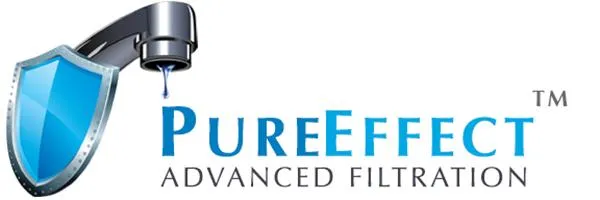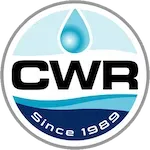Water - The Essence of Life
Water touches every part of our lives—we drink it, cook with it, bathe in it, and clean with it. It flows through every part of our daily routine. But here’s the truth: the water flowing from your tap might not be as safe as it seems. Whether it comes from a municipal system or a private well, hidden contaminants like PFAs, chlorine, heavy metals, and pesticides can make their way into your home without you even realizing it.
And this is a problem, because every time we drink, shower, or cook with water that contains toxins, it adds to our body burden. That’s why understanding the quality of your water and how to improve it is one of the first—and most impactful—steps toward living a cleaner, healthier life.
I’ll walk you through exactly what’s in your water and what you can do about it, so read on. Clean water isn’t just about hydration; it’s about reducing the hidden toxins that could be impacting your health in ways you don’t even realize.
Why Clean Water Matters
Our bodies are about 60% water, and every cell, tissue, and organ depends on it to function properly.
The water we drink helps to:
Regulate body temperature
Lubricate joints
Protect sensitive tissues
Aid digestion and nutrient absorption
Flush out toxins
When the water we consume is contaminated, these vital processes can be disrupted, leading to health issues that range from mild discomfort to serious long-term problems. While water treatment plants in cities do filter some contaminants, they aren’t always successful in removing the most dangerous pollutants. This is why taking control of your water quality at home is essential.
The Hidden Dangers: PFAs and Other Chemicals in Municipal and Well Water
What Are PFAs?
PFAs are a group of over 4,700 man-made chemicals that have been used for decades in a wide range of industrial applications, including non-stick cookware, waterproof fabrics, food packaging, and firefighting foams. Dubbed "forever chemicals" because they do not break down in the environment or in the human body, PFAs accumulate over time, leading to serious health concerns.
Increased risk of cancer
Hormonal disruptions
Liver and kidney damage
Compromised immune system
Developmental issues in children
What makes PFAs particularly concerning is that they are found not just in industrial areas but in municipal water supplies and even private wells. Once these chemicals leach into the groundwater, they can travel long distances, contaminating water sources far from their origin. The EPA has recognized the risks, but many municipalities have limited resources to adequately filter these chemicals.
While PFAs are a major concern, they are not the only potential danger in your water supply.
Municipal water may also contain:
Chlorine:
Chlorine is widely used in municipal water systems as a disinfectant, killing harmful bacteria and pathogens to ensure safe drinking water. However, when chlorine interacts with organic matter in water, it can create dangerous byproducts known as trihalomethanes (THMs) and haloacetic acids (HAAs). These byproducts are linked to increased cancer risk—particularly bladder cancer—and can cause liver and kidney damage with prolonged exposure. There is also evidence suggesting that exposure to chlorine and its byproducts may lead to reproductive health issues, including low birth weight and complications during pregnancy.
Lead:
Lead contamination in drinking water remains a serious public health issue, especially in older homes with aging pipes and plumbing systems. As water flows through lead pipes, lead particles can leach into the water supply. Even small amounts of lead exposure can have devastating health effects, particularly for children, whose developing brains and nervous systems are highly vulnerable. Lead poisoning can cause irreversible brain damage, developmental delays, learning disabilities, and behavioral problems. Pregnant women are also at risk, as lead can pass through the placenta and harm the developing fetus. Unlike other contaminants, there is no safe level of lead exposure, making it critical to filter water effectively to protect your family.
Nitrates:
Nitrates, found primarily in fertilizers and agricultural runoff, often contaminate drinking water in rural areas or regions with heavy farming operations. When consumed, nitrates interfere with the body’s ability to transport oxygen through the blood, a condition known as methemoglobinemia or "blue baby syndrome," which can be life-threatening for infants. Pregnant women are also at risk, as high nitrate levels can reduce oxygen flow to the fetus, increasing the chance of miscarriage or birth defects. Even low-level, chronic exposure to nitrates has been linked to thyroid issues and certain cancers, emphasizing the importance of filtration systems designed to eliminate these contaminants.
Pesticides and Herbicides:
Pesticides and herbicides, used extensively in agriculture, often seep into groundwater and contaminate both municipal water supplies and private wells. These chemicals contain toxic substances designed to kill weeds and pests, but they can also pose serious risks to human health. Exposure to pesticide-contaminated water has been associated with hormone disruption, cancer, neurological disorders, and reproductive problems. Some pesticides mimic hormones in the body, leading to early puberty, fertility issues, and developmental delays in children. Herbicides like glyphosate, which is commonly used in farming, have been linked to kidney disease and non-Hodgkin’s lymphoma.
Radioactive pollutants:
Radioactive pollutants, such as uranium, radium, and radon, can naturally seep into groundwater from surrounding rocks and soil or result from industrial activities and nuclear waste. Long-term exposure to radioactive contaminants in drinking water has been linked to cancer, kidney damage, and developmental issues.
Pharmaceuticals:
Pharmaceutical pollutants, including hormones, antibiotics, and painkillers, enter the water supply through improper disposal, agricultural runoff, and human waste. These contaminants may interfere with the body's endocrine system, disrupt hormone levels, and contribute to antibiotic resistance. Unfortunately, many municipal water systems aren’t designed to filter out pharmaceuticals or radioactive elements, highlighting the importance of home water filtration to protect your family’s health.

Even well water, often considered safer than municipal water, can contain contaminants like heavy metals, bacteria, and viruses if not properly maintained and tested regularly.
Why Home Water Filtration Is Essential
Given the potential dangers lurking in both municipal and well water, relying on a water filtration system at home is one of the best ways to ensure that your family is consuming clean, healthy water.
STEP 1. Find out what's in your water.
So, how can you know what's coming out of your tap? Tap water suppliers publish their water quality tests. (The vast majority of bottled water companies don't.)
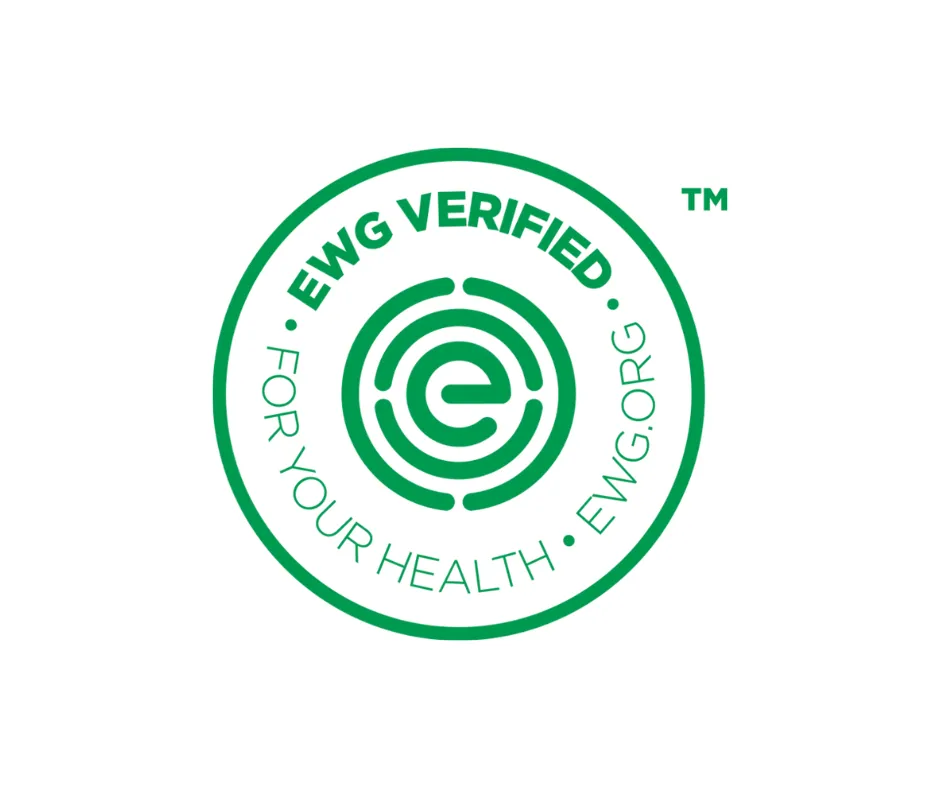
Environmental Working Group (EWG) offers a comprehensive report on municipal water. You can simply type in your zip code and see the latest test results reported by the municipality.
EWR Report Example
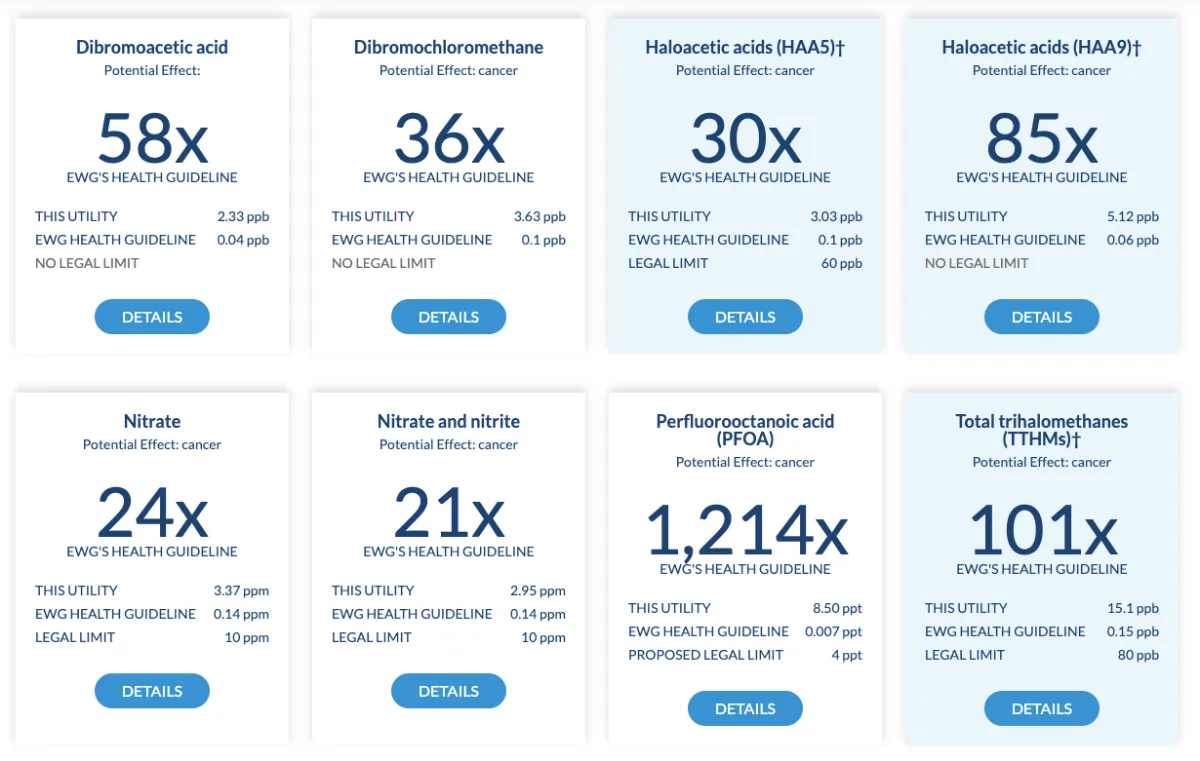
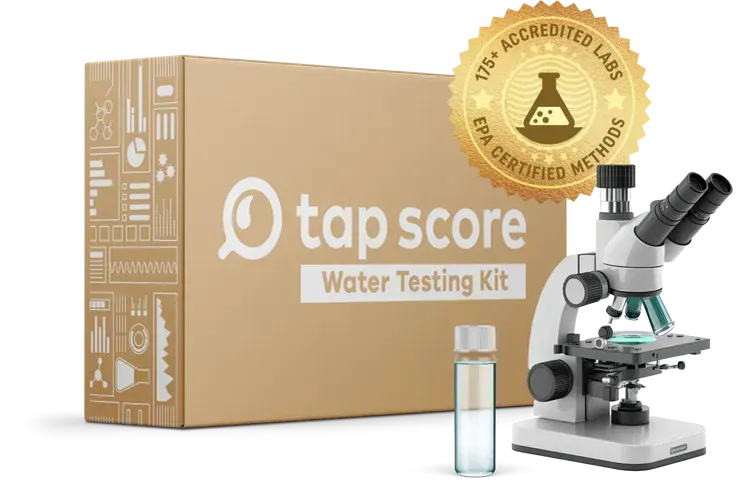
While municipal testing shows what’s in the water when it leaves the treatment plant, a lot can happen between there and your faucet. To be sure about the quality of the water in your home, we recommend using a reliable home water test kit from . Tap Score combines the integrity of a world-class laboratory network with the ease of DIY kits to make testing your drinking water simple, fast and factual. (This is the same test we use in our own home and recommend to our clients)
STEP 2. Find a Water Filter that's right for you.
Given the dangerous toxic chemicals lurking in both municipal and well water, installing a water filtration system at home is one of the most effective ways to protect your family and ensure they have access to clean, healthy water every day.
Here are several types of water filtration options available to you as a consumer and the tried, true, tested and verified water filters we recommend.
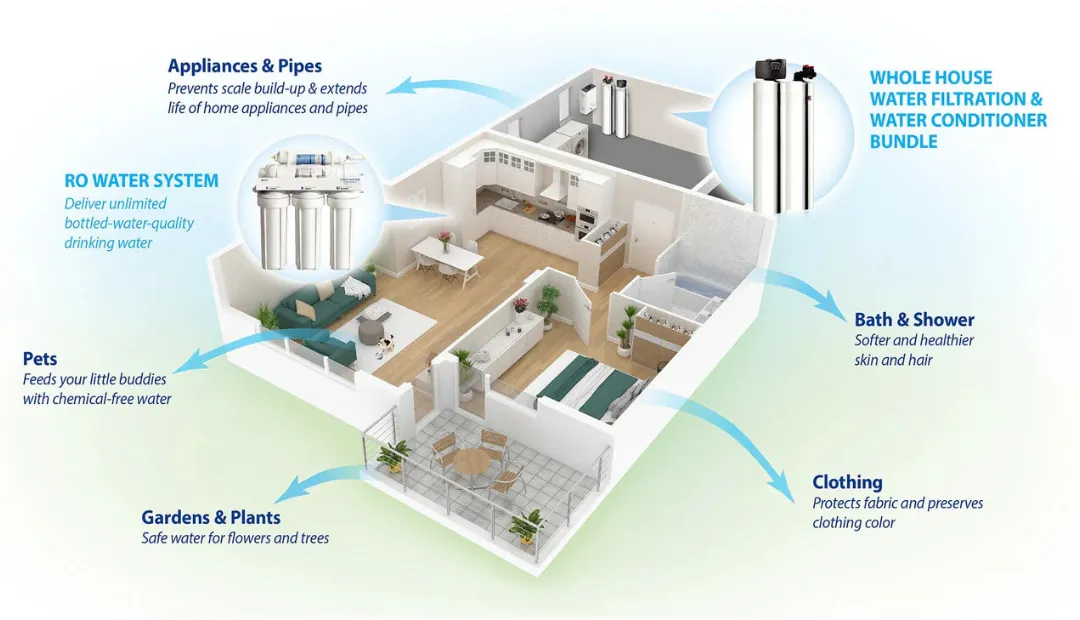
Whole House Filtration System
Best For: Families who want clean, filtered water from every tap.
A good quality whole-house systems filter water as it enters your home, removing contaminants like PFAs, chlorine, and heavy metals throughout the entire house. This ensures that even the water in your showers and washing machines is safe and toxin-free.
The two companies we recommend are:
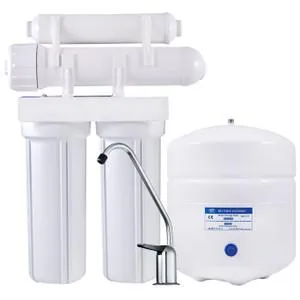
Reverse Osmosis (RO) Under Counter System
Best For: Drinking and cooking water.
Reverse osmosis (RO) systems are installed under your sink and remove a wide range of harmful contaminants, including PFAs, lead, nitrates, and pesticides, radioactive materials, and much more. They use a multi-stage filtration process, providing some of the purest drinking water available.
Our recommendation:
Use code "CLEAN" to receive discount pricing for Clean Living community.
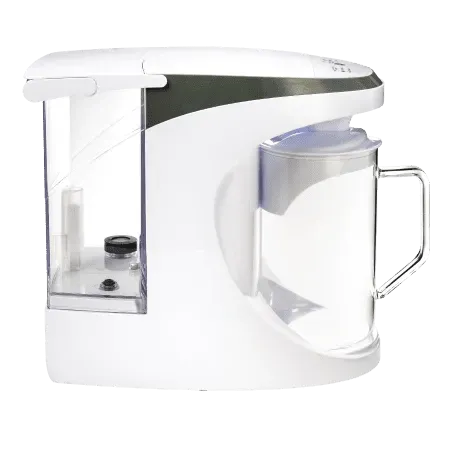
Reverse Osmosis (RO) Countertop System
Best For: Drinking water, Tea or Coffee.
The AquaTru Carafe countertop purifier packs a powerful, installation-free purification technology into a smaller footprint, making it perfect for individuals and smaller households. Pour with ease or store the thoughtfully designed glass carafe in the fridge for chilled water at hand. Whether you’re filling up a tall glass or brewing a cup of coffee, AquaTru Carafe will meet all your clean drinking water needs.
Our Recommendation:
Carbon Filters
These filters could be under-mount, attach directly to your faucet or even sit on your countertop, filtering out chlorine, VOCs, and other toxic compounds. While some carbon filters may not catch everything (like PFAs or heavy metals), they often offer a budget friendly solution for those looking for a simple way to improve water taste and reduce some chemical exposure.
It is important to understand what each specific carbon filter is able to filter out.
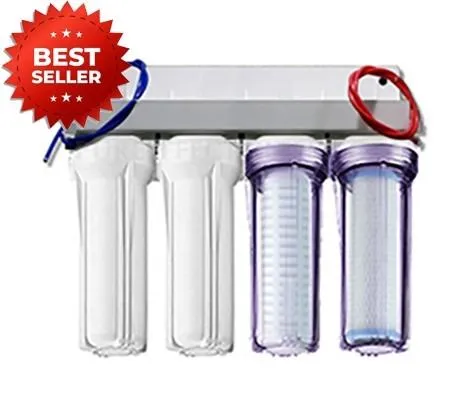
Undersink recommendations:
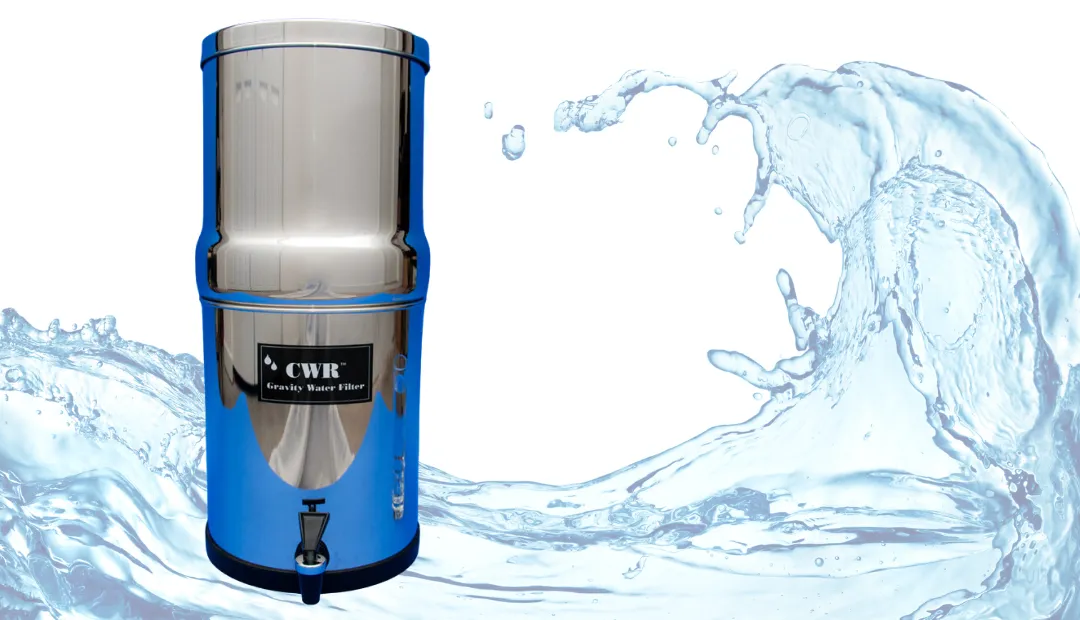
Countertop Gravity Filters
Best For: Water filtration without plumbing installation.
Gravity filters use natural filtration through layers of carbon, ceramic, or other filtering media to remove chlorine, heavy metals, bacteria, and more. These filters work independently of electricity and plumbing, making them great for emergencies or off-grid situations. It may also make a great option for someone who is renting and not able to install a sink attached or an under-sink filter.
Countertop Gravity Filter recommendations:
Use code "CLEAN" to receive discount pricing for Clean Living Community
It’s time to make clean water a priority!
Your health is in your hands—let’s make every sip, shower, and meal count.
Water News & Updates
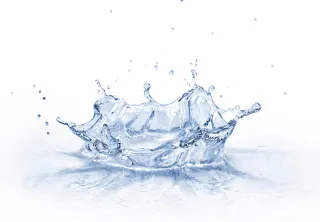
The Essential Guide to Clean Water: Why Water Filtration at Home is Crucial for Your Health
Water is the foundation of life. It’s something we use every single day, from drinking to cooking, bathing, and cleaning. However, the quality of the water coming from your tap—whether from a municipa... ...more
Health ,Water
October 09, 2024•7 min read

FOLLOW US
COMPANY
CUSTOMER CARE
LEGAL
Copyright 2025. Clean Living Coaching. All Rights Reserved.
